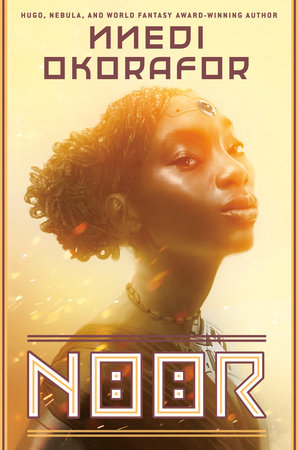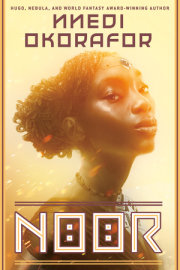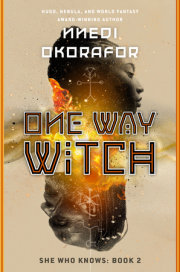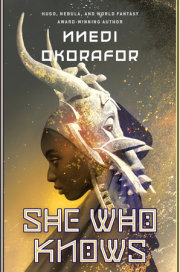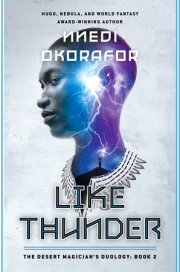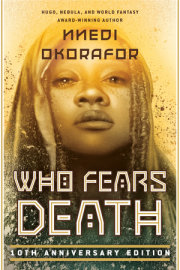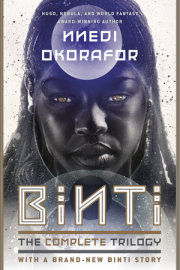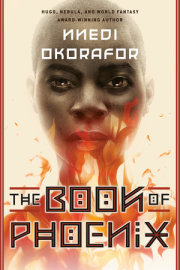What Kind of Woman Are You? 48 HOURS EARLIER . . .
It was late when I got home. I switched the light on in my bedroom and a startled gecko rushed up my wall and tried to hide near the ceiling. “Oh, not today,” I muttered. Then I spent the next hour trying to catch it. Thankfully, the thing escaped out the window. Wall geckos have always bothered me, and the thought of sleeping with one in my bedroom made me angry. On top of this, my headache was back. I knew I wasn’t going to sleep well.
I drifted into normal sleep just as the sun was rising. I think. I don’t quite remember. I was in my bed facing the window, rubbing my temples. My headache wasn’t ready to let up, thumping its drumbeat as if it wanted my spirit to go somewhere else. I was gazing across the Abuja building tops, there was a go‑slow in the distance and I remember feeling glad that I didn’t have to be in it. These days, I rarely had to travel on the highway, anyway, thanks to the auto shop being only two miles away. My world was comfortably small.
The sunrise was a warm one, the breeze wafting into my open window. I liked the heat; when it was hot, I felt languid, effortless, good. I slept naked, unbothered by mosquitoes. They never seemed to like me. A hawk soared past my apartment window. Or maybe it was a vulture. The beating in my head seemed to surge. “Ah,” I groaned, rolling over.
Then I was watching my ex‑fiancé Olaniyi’s back as he walked out the front door into a lush undulating jungle, a fantastic drum beat rolling up the green, red, and yellow leaves of trees and bushes. I looked up and the sky wasn’t really the sky because I was dreaming. It was like looking at a sky that was a blue leaf under a strong microscope and you were zooming and zooming in to see that it wasn’t a blue leaf at all; it was millions of blue eyes that made up the leaf. All those eyes were looking at me. And then they weren’t blue, they were red, like the eyes of lizards looking. Blinking and looking, blinking and looking.
When
I blinked, I awoke, my heart pounding and my head aching so badly that I winced. I should have known the day would carry its own basket of strange. I should have known to be prepared. It was Friday, but I should have stayed home.
The auto shop expected me in at eleven AM, so there was time. This would be my first weekend without Olaniyi. He’d come by and taken his things days ago, and when he walked in, he was holding heavy black charm beads in one hand and he refused to look me in the eye. He moved quickly, grabbing his clothes, laptop, chargers, his moldy old books. I said nothing, but inside I was weeping.
Now, fiancé gone, my life plans in unexpected ruin, I intended to spend much of the weekend weeping. I was going to wipe all of him away with a delicious meal of egusi soup heavy with shrimp, beef, and fish, smoothly pounded yam, perfectly fried plantain, sliced sweet mango, a coconut cake and hot tea.
I was going to
not call any of my friends. I was going to work on a sand repelling device called an “anti- aejej,” which a man from up north had brought me to repair. I’d only seen and fixed one, all using guess- work. I was sure I could fix this one, too, and I was excited because I was going to fully understand how it worked. All of this I could do in my spotless incense- scented, quiet roomy apartment with no man I loved staring at me as if I were a demon he’d been jujued into loving.
The evening and then the weekend were mine.
But first, I needed to do some food shopping before work. When I’d lived in Lagos, just getting to the market early would have been a whole morning affair. However, I’d followed my fiancé here to Abuja because a good mechanic (especially one with a cybernetic left arm and thus a hyperdexterous hand) can find work anywhere and a good man is hard to find. And so my life was a different story where I could go to the market in the morning and still make it to work on time.
Abuja was slower, lazier, yes. It’s only a few hours’ drive from the Red Eye, but a few hours’ drive is a long drive when you are just trying to live your life. Despite its relative closeness to the abomination in the north, Abuja was a thriving city that rivaled the fast- paced, clean innovative ones in the south like Lagos, Owerri and New Calabar. And in Abuja, men were less likely to run over a woman like me crossing the street.
Today, I could make it to the market and back before work. I drove, as I always did, and I went to my favorite market, the one that was about a mile away. I knew where everything was. Finding all the ingredients I needed would be easy. They knew me there, too. Or so I thought.
It actually
was a really warm morning. So my dream was right about
that, at least. It was also right about the refreshing breeze. I wore no make‑up. No earrings. I’d braided my shoulder-length dreadlocks to cover the silver nodule that was the tip of my neural implants. Weeks ago, I’d even dyed my dreadlocks jet-black, so no one questioned how “clean” they were (for some reason, people always thought brown dreadlocks were dirty). And for extra cover, I wore a rose-colored veil over my head. I wore a light but long sleeved green silk top. My skirt was thick, covering my ankles and part of my feet, so neither my legs nor my arms were in view. They shouldn’t have caused any trouble.
Granted, by definition, to many Nigerians, I was trouble. Even in Abuja, though it wasn’t as rabid as in the south, I was a demon. A witch. An abomination. Priests, reverends, bishops, pastors and imams, holy men all over West Africa said so. To replace an organ or two with cybernetic, 3D-printed, non-human parts was fine. People needed pacemakers, new limbs, skin grafts, etc. But if you were one of those people who
seemed to be “
more machine than human” for whatever reason, one of those who “refused to obey the laws of nature and die,” you were a demon. I’d seen people like me fall victim to jungle justice in viral videos, murdered (or “shut down” as people liked to joke), attacked in the streets and, in less extreme cases, shunned. We were supposed to die; what we were doing instead of dying wasn’t living.
Then there are those who clump all of us into the same group. And when you do that, we all became “those Africans so deeply affected by twisted western ideologies that we’re obsessed with perfection and what money can buy.” We are cultureless children of the filthy rich corrupt elite class that has nothing better to do but augment our bodies with bullshit just because we can. We aren’t
real Africans, we are the bootlickers of the United States, China, or the Emirates.
People here in Abuja have thought I was the daughter of an energy tycoon or the mistress of an Ultimate Corp exec simply because of what I am. Me. As if. I just wanted to live my life. As I was. As what I chose. As what I was. I was born and raised in Lagos, like 90 million other people. It’s not too much to ask.
Anyway, as I said, most of the men and women in this market
knew me. This was how I’d learned to live over the years. When you are someone like me, one who is always fighting for herself, against oppression, hate, misunderstanding, fear, you move about the world with care. You seek out those places where people will accept you and you nest there.
Why would I want to force my way into a place that hates me? I don’t have time or energy for that. When I moved here with Olaniyi, I tasted the environment. Once I decided it was okay, I gradually let myself come to know this part of Abuja and it came to know me. In this market, for over two years, I’d fixed their cars, repaired their phones, brought people relief, made people
happy. I thought they understood me. As I thought Olaniyi had. Foolish.
I had a basket and a synth-fiber bag with me. I bought semi-ripe plantain from a man who’d just carried in and set down a bunch in his booth. He was happy to sell to me. He’d laughed after we negotiated the price, saying that I was both fair and a cheat. “I am impressed,” he said. “And I’m glad there is only one like you.” He had his mobile phone stuck to one of those charge belts and it was showing the days’ news. I remember what was on because the man’s phone was the size of a book, the volume was high enough for everyone in the cluster of stalls to hear, and the anchorwoman had those thick and braided eyebrows that only people in front of cameras had the nerve to have.
“It was a nightmare here yesterday as four Fulani herdsmen armed to the teeth stormed this small Nigerian village on the edge of the Sahel Desert, pillaging and raping as they went,” the anchorwoman said, her braided eyebrows raised dramatically. “For decades, these herdsmen have terrorized peaceful farmers trying to live their lives . . .” Then the man was handing me my bag of plantain. He’d looked me over, chuckled and shook his head. “You’re so pretty, but you’re too tall.”
I rolled my eyes and shrugged. “Can’t be everything,” I said, turning away. I lengthened my cybernetic legs, making myself a little taller as I walked away. My ex hated when I did that. The plantain seller thought I was out of earshot, but I heard him add, “See this demon disguised as a woman. May Allah help us all.” Some of the men around him laughed. It wasn’t the bad kind of laughter. I knew what the bad kind of laughter sounded like. So I merely rolled my eyes. He’d had one of those blue Imam Shafi Abdulazeez event flyers tacked to the booth wall behind him; they had the image of the imam pointing a finger dramatically upward as he spoke and at the bottom a circle and slash over a drawing of a generic robot. The event had happened yesterday. I shrugged it off. People would calm down in a few days, and there were other places in the market I could buy fine plantain.
It was when I was looking at the peppers. I remember because I smelled it. Sniffed it in the air. I’d sniffed and sniffed. I was looking at habanero peppers, yet I was sensing a different type of pepper over the habaneros. Something in the air was hot and charged; something was burning. I assumed it was my neural implants acting up again.
I groaned, wrinkling my nose, muttering, “Make it stop.” Nothing new, though. When you made changes there were always small unexpected results along with the larger expected ones.
I’d been building on myself for years. Why shouldn’t I? I’ve been doing it ever since I was legally old enough to make those choices. My latest augmentations were the neural implants I’d gotten six months ago. I was still getting used to them. Olaniyi hated them; he believed “enough was enough,” but who was he to decide?
I’d had memory issues since I was fourteen, because of the car accident. That’s nearly half my life. Long before I was a thought in Olaniyi’s uncomplicated mind. My memory issues got progressively weirder as I grew older. I started seeing things happening backwards. It was horrible and jarring. Imagine trying to cross a street and just before you make a run for it, you see all the cars and trucks driving backwards exactly as they would in real chronological time. It was like being psychic backwards.
I forget what the doctors called it; there was a scientific name. They said it was attributed to feedback from artificial neural connections in my arm mingling with the natural ones in my brain and the cellular and digital connections all around me. They are still studying the phenomenon. The moments wouldn’t be long, but when they happened, I always wanted to grab my head and start screaming. I refused drugs (drugs tend to cause new problems worse than the ones they fix) and no amount of therapy worked to stop it.
So I tolerated it. For
years. Then when they reviewed my files and contacted me last year with the opportunity to get implants that boosted memory, increased my brain’s mental ability, and would stop my problem, I immediately said “yes.” The icing on the cake was that now I’d always be online, so there’d be no issues with upgrades, updates, or my cybernetic organs staying in sync with each other and my nervous system. My doctors also offered a much stronger connection for all this. I ok‑ed it all. Olaniyi said he was fine with whatever I chose to do, but he also began to pick fights with me.
The implants made me better. Except that after I healed, the implants brought these vicious headaches and sometimes I smelled things. I’d been enduring them as the price I paid for normalcy. Since they didn’t hurt anyone else and only hurt me a little, I just accepted them as part of my new being. No implant or augmentation was ever free of aches, pains, or strangeness; these were a small price to pay for the ability to move about the world on my own terms. And they were better than having to take a drug to treat problems caused by a treatment. Of course, Olaniyi wasn’t interested in hearing any of this.
This day, my head ached and I smelled pepper. When I looked up, putting down the onion I was inspecting, I made eye contact with a beautiful man. He was sitting on a stool with some others. Some wore trousers and dress shirts; I recognized one of them, his name was Okenna Nwachukwu, a shop owner who’d sold my ex his car. Others wore agbada and sokoto; I did not know any of them. Dull and brilliant colors, dull and complex fabrics. All men.
Over the strong pepper scent, I could smell the scented oil the men wore. Sandalwood. These were probably men who’d lived in Abuja for a long time, maybe they’d been teens when the Red Eye began to pick up speed in the north. Their parents may have been the ones who shouted that desertification would surely stop and the dust storms would never make it farther than Jos. And maybe they’d been at Imam Shafi Abdulazeez’s event yesterday.
I didn’t like the way the beautiful man was looking at me. As if I weren’t supposed to be there. I shivered, feeling the hairs on my neck rise, becoming too aware of my dexterous metal hand; the sophisticated hand of a robot. I knew it was one of the first things he’d looked at and noted. Wearing a glove only brought more attention to my arm. People there are too nosy and curious. The fingers could twist in all directions, as could my wrist. I could extend the arm to twice its length. I’d gotten my cybernetic smart arm and hand when I was seventeen, when my doctor said I’d finally stopped growing and could have the surgery. Before that, my very short arm stump had been fitted with an externally-powered prosthetic. Yes, my arm and its hand were extraordinary, still highly experimental, and to save my parents the cost, I’d opted out of the “humanizing exterior” that felt, smelled, even reacted like human flesh.
But people
knew me in this market.
So why were people staring at me today? Maybe they’d been staring at me all along. All these years. Since I’d come to Abuja. Maybe I just hadn’t noticed. And maybe I just hadn’t noticed today that tolerance of me had reached critical mass. Or maybe that damn imam had really gotten into people’s heads yesterday.
If you could, wouldn’t you replace your damaged legs with cybernetic ones? Why hold on to malfunctioning or poorly formed flesh and bone because “we were born with it”? That’s something said only by people who have no choice or have no actual experience with being . . . unable. What makes you
you, really? I’m a mechanic. When something isn’t working, you replace it with something better, something that
is working.
“Stop staring at me,” I muttered. My chest felt tight and I coughed. Some woman chuckled. Those men kept staring at me as they talked amongst themselves. I bought a bag of the onions and bell peppers I planned to use later in the evening despite my instincts telling me that I should leave.
The ground was pounded dirt that had been walked upon, stood upon, day in, day out. Sandals, boots, shoes, bare feet, the paws of cats and dogs, the taloned feet of vultures, the clawed feet of pigeons. It was soaked with spilled Fanta and Coca Cola. Sometimes it was turned to mud by the occasional rain. Leaves tumbled on it in the wind, trash was dropped on it, fruit was mashed into it. Motor oil, goat feces, chicken shit, semolina, garri. The dirt told everything. It was the greatest griot. It was blended with my tears, my skin cells, one of my torn off dreadlocks, the hot juice from my crushed peppers.
However, it wasn’t blended with my blood. That was
their blood. Only their blood. None of mine. And yes, my legs and arms and several of my organs may be 3rd Life, but I do still have human blood. And I have a human heart. For now.
They spoke, then they yelled at me in Hausa, Igbo, Yoruba, but mostly in English. I understood all of them. A good mechanic knows how to communicate with customers, even when she can’t speak their language. Plus, YouTube had taught me how to build and take apart technology, and that includes the technology of language. Especially after I got the neural implants.
“What kind of woman are you?” the beautiful man asked me in English. He had a robust, well-groomed beard that he’d dyed reddish orange, full lips, bright sparkling light brown eyes. He was as tall as me and standing way too close. I could smell the perfumed oil he wore. Yes, sandalwood. One of my favorite scents.
I looked him in the eye. I could feel every part of my body, my pumping heart, my shaking hands. Adrenaline. I was furious. My head throbbed harder than ever. People knew me here. I took my time. I chose my words carefully. The beautiful Hausa man reminded me of my fiancé who’d asked the same question not long before he walked out the door. “What kind of woman are you?”
I said to him what I said to Olaniyi who hated all my augmentations so much yet still loved me, “I will never answer your question.” My voice was cold, even hard, and it was low. And as I spoke, I looked the beautiful man dead in the eye, just as I had looked into Olaniyi’s eyes.
And like Olaniyi, he slapped me in the face. But much much harder. Hard enough for my world to burst into silver, red and blue. It was as if Amadioha or Shango had slapped me. With an electrified hand. Like lightning. I was in a nightmare with my eyes open. I blinked and for a moment, I saw a million eyes, red red red eyes, a honeycomb of eyes, a pomegranate of eyes, all on me. Then all those men started beating me, and it was their wild eyes I saw between fists and feet. I don’t know when they’d stood from their stools.
No one helped me.
I don’t remember if anyone spoke or shouted. But I know that no one helped me. My eyes were open. I saw between the feet and legs, past the arms and I smelled the fear.
So I helped myself.
Copyright © 2021 by Nnedi Okorafor. All rights reserved. No part of this excerpt may be reproduced or reprinted without permission in writing from the publisher.





